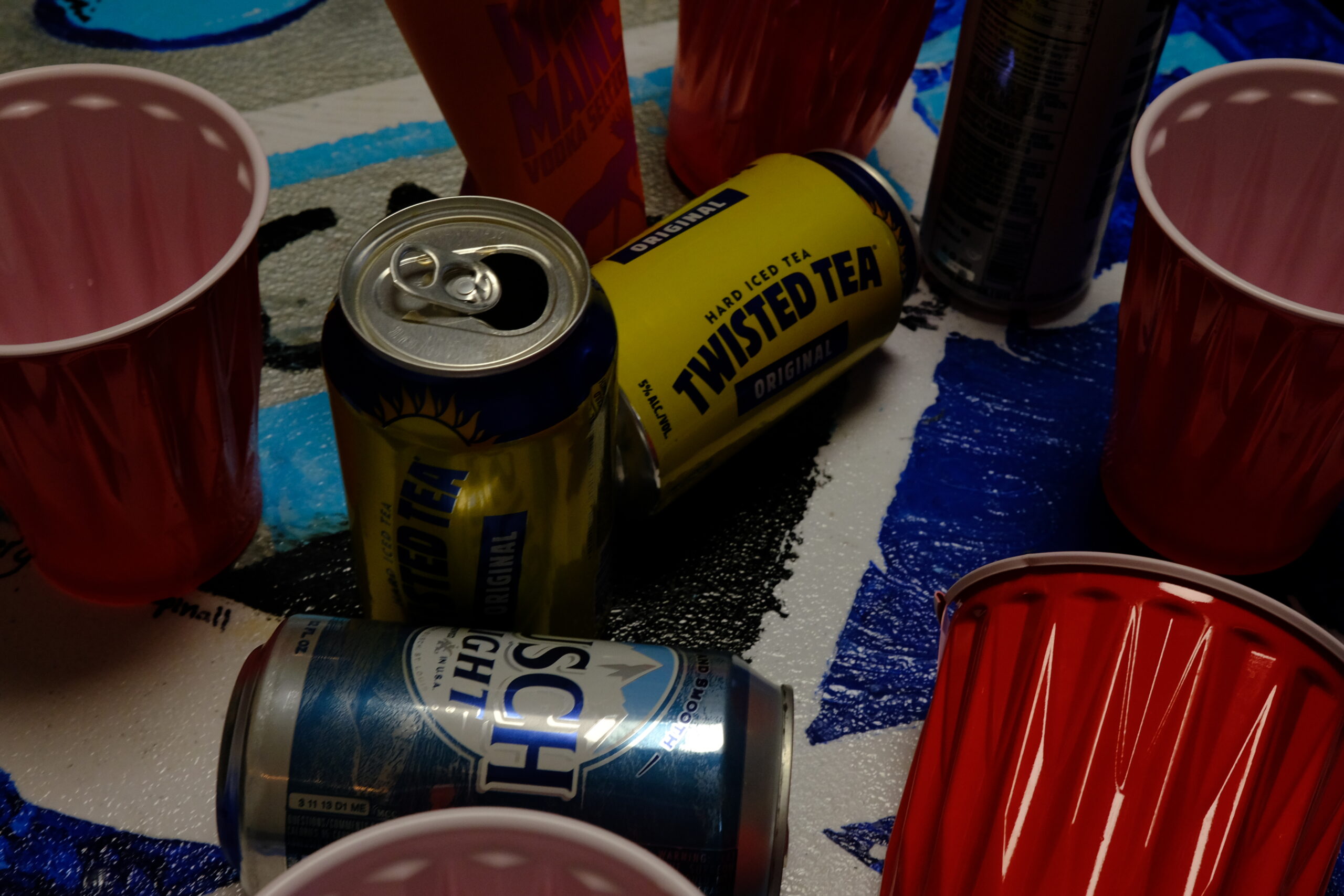One of the biggest associations that people make when they think of college students is partying, drinking and overall miscreant behavior. However, as many of us college students know, that truly isn’t the case. Most of the time, this behavior is more commonly expected by the same group of people who behaved similarly in middle and high school and will likely continue this lifestyle later in life. This behavior, however, results from one of the biggest social pressures seen on campuses nationwide.
The University of Maine is renowned for being a “party school,” and as a student, I can see why. Almost every Sunday morning, I wake up to vomit-covered bathrooms, red solo cups littering the halls, lobbies, elevators and even the stairs and surrounding areas of the dorm. Every Saturday night, I observe a stampede of tipsy undergrads staggering in, alerting the entire building of their arrival with the sounds of their boisterous laughter and incessant knocking on doors, as well as screeching, ripping posters off the walls and running at full speed (as fast as an intoxicated teenager can run).
Now, I’ve been on both sides of this situation. I, too, have been the obnoxious undergrad, disturbing the peace of the others who live in my building, but never to this extent. The fact that this behavior is not only expected but encouraged is incredibly detrimental to many social standings: either you drink, party and act like an animal, or you do none of it and watch TV all alone. A lot of the time, there is no in-between.
Pressures like this are so much greater nowadays than they ever were. Now, with the help of social media, people feel the need to show off their lifestyles constantly. Fifty years ago, if you weren’t at a certain social event, it was no big deal. Nowadays, if you aren’t there, you’ll get a point of view from everyone’s perspective, as well as a live stream and countless Snapchats to let you see exactly what you’re missing out on. This type of awareness institutes a great deal of pressure to perform for others. Past generations still had the pressure to perform, but they didn’t have the technological influence that students have nowadays, which unfortunately gives social pressure greater influence at higher rates than ever before.
This type of behavior also puts unnecessary strain on personal relationships with roommates, RAs and friends. If you are around someone who is constantly vomiting or needing to be taken care of, like a 5-year-old, it gets incredibly tiring, especially when you’re tasked with cleaning up after them. But, as previously mentioned, either you’re there and participating, or you’re in your dorm awaiting the arrival of your drunk friends. I have been told countless stories about roommates who participated in the festivities that UMaine has to offer, leaving their roommates to clean up the mess.
Technological advancements have greatly increased the amount of peer pressure and overall societal pressure that college students face. Hazing has always been associated with universities, but recording such treatments never occurred before the universal access to video cameras of today. Hazing, like partying, drinking, etc, is strongly associated with the college experience, especially for students participating in Greek life. Here on campus, we have a no-tolerance policy for this behavior, yet we all know it still occurs. Traditions such as hazing are generations-long and, much like underage drinking, will always be found on campuses nationwide.
Greek life is one of the biggest perpetrators of the negative behavior that was previously mentioned. Everybody wants to go to a frat party, and a lot of people do, but nobody really talks about what happens after the party. Once alcohol limits your inhibitions, good behavior is not a naturally occurring thought. Instead, students recklessly drive their vehicles and cause property and personal damage, steal signs, fall down stairs, vomit in hallways, and generally terrorize those who live near them.
Greek life has the opportunity to do such great things with its status here on campus. Still, many individuals continue to keep breaking the rules, introducing unnecessary pressures and getting themselves kicked off of campus.
These pressures have always been prominent on university campuses but are now more widespread than ever before. The influences of these pressures are found all over and aren’t going away anytime soon. How do we, as a society, determine when enough is enough?




